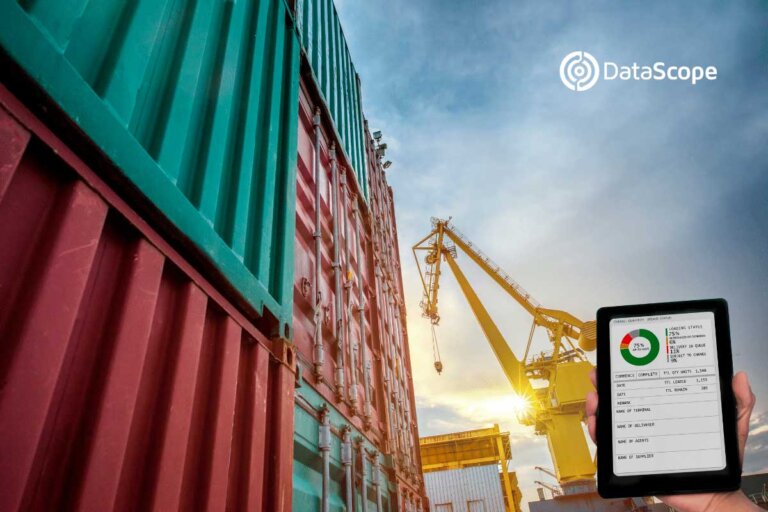Managing a truck fleet is one of the most sensitive tasks in a company’s logistics process. The challenge is to establish procedures so that each truck works perfectly, thanks to inspection and maintenance guidelines. And its success depends on the ability to carry out this process in a methodical and thorough way on one hand, and to process this information in a fast and organized way on the other.
However, technology plays a fundamental factor so that all the truck verification work is carried out completely, leaving no aspect to chance and thus getting the most out of the machines.
Which is the importance of the management of a fleet of trucks?
To understand the role of the successful management of a truck fleet, it is necessary to start by understanding the scope of what logistics means for the industrial activity.
In general terms, logistics integrates transport, storage and preparation of orders of a company. And within that scheme, the use of trucks is essential. For this reason, it is vital that the fleet is in perfect condition and, to achieve this, there are many points that must be reviewed.
Every element that makes up the mechanical and electrical system of a truck is at stake. Also those that affect the safety of the driver and passengers, in addition to the integrity of the cargo, so that it reaches its destination in perfect condition.
However, the amount of information is enormous. There are a lot of data and papers that you have to write by hand and then digitize everything, with a high risk of losing very important data. For this reason, it is necessary to analyze how to improve this management.
How to improve the management of a truck fleet?
Given the large amount of information that is generated from the routine inspection of trucks, many companies are leaving paper behind and opting for technological solutions that allow better organization and optimization of all processes.
However, the first step is still to establish and adhere to a routine to certify that everything is okay before each truck hits the streets. Among the points to review, we can consider the following check list:
- State of bodywork
- Tires
- Lights
- Safety elements (seat belts, wipers, etc.)
- Brakes
- Air and fuel lines
- Electrics
But regardless of the size of the fleet and the complexity of the logistics process, gathering the data by hand, on paper sheets, is far from being an efficient procedure.
Thinking about this, the ideal is to have a specific digital application that allows the company to generate continuous improvement in its truck fleet, transform failures into opportunities, prevent losses and avoid the damages that a bad revision can cause.
What benefit does an app offer for the management of a truck fleet?
Having technological support for tasks as sensitive as managing a fleet is crucial. Therefore, we identify six benefits that we should consider when talking about an application for managing a truck fleet:
- Flexibility in the fleet operations
When it comes to truck fleet management, there are a number of differences when it comes to establishing the objectives pursued by the review we want to do. The first question we must ask is whether we intend to do:
- Preventive maintenance and revision of vehicles
- Assessment of the security equipment in the truck
- Inspection of the aesthetic appearance of the vehicle
- Revision of the vehicle entrance and departure at the company
The application that is required to verify a fleet must be created to respond flexibly to the different objectives that we want to achieve. Considering that the digital step comes to replace a work pattern that was carried out manually, it is advisable to give it continuity, maintaining its format, questions and the check list. Thus, the most frequent information that we can include considers:
- Company unit
- Inspection date
- Vehicle identification
- Truck pictures
- Observations
- Name and digital signature of the person responsible for the inspection
- Name and digital signature of the driver
- Reduction of the unexpected maintenance costs
In general, companies that seek the support of technology to manage their fleets aim to prevent and solve critical situations associated with the inspection and maintenance of their trucks. The fundamental reason is that this type of procedure helps to avoid damages and losses through a more exhaustive and efficient control.
By using an application developed specifically for this purpose, it is possible to quickly perform a check list, even using a cell phone to enter the data.
Depending on how the tool is developed, it is possible to discard the aspects that conform to the established parameters. It is also possible to keep a history of the information of each vehicle, so that the information of previous revisions and maintenance can be accessed quickly.
Finally, digital support also provides the facility to immediately establish an action plan to correct and repair what must be done, with established, limited and, organized deadlines, with the minimum margin of error.
- Normalization and organization of the information
Another critical aspect when managing a fleet occurs when each driver reports an abnormal situation that requires priority attention.
In these cases, a digital system makes it possible to identify, catalog and prioritize the requirements of each vehicle, easing the work of the person in charge, especially when it comes to large fleets or a large number of incidents.
The idea of having an application dedicated to this type of task is precisely to organize each case, storing the data safely and with easy access, also allowing the necessary visibility so that these situations are reviewed and repaired in the shortest possible time, avoiding that the vehicles cannot circulate as a result of a breakdown or, worse still, that they circulate and are exposed to the risk of any type of accident, putting the integrity of the driver or other occupants, third parties, the truck itself, the load at risk that carries and, ultimately, the reputation of the company.
- Evidence of inspections and legal certainty
Another aspect that cannot be forgotten is the importance of checking the maintenance and inspections carried out on the fleet, in order to guarantee levels of legal certainty for the company in the event of accidents or accidents.
We already know that the data volume is huge, as well as the chances of an error by default. If we consider that trucks are exposed to streets and routes, where all kinds of situations can happen, inspections are extremely important, which is why they must be very well recorded and verified.
If any accident occurs, the importance of conducting a review of the trucks in a fleet is essential, since with this type of maintenance record the company can establish whether the management of its vehicles was done correctly, following the protocols previously established in a preventive manner.
By having a digital application for this type of situation, there is the option of designing it in such a way that it allows incorporating all kinds of details, including photos, dates, GPS for the entry and exit of each truck, which reduces the possibility of committing fraudulent actions.
- Generation of automatic and personalized reports
The advantage of having an application that supports the management of a fleet not only translates into the time saved by leaving out dozens of forms to fill out.
In addition to that, digitization allows a file to be generated immediately in various formats of your choice and in real time. This facilitates communication and information exchanges with other areas and company executives, in addition to file storage and backups.
- Competitive Advantages
Considering all the benefits already mentioned, a truck management application provides an element that contributes to the dynamism of the company’s work routine and to the organization of a truck fleet, regardless of its size.
The technology allows the generation of immediate reports, with high levels of security and reliability of the information they contain, as well as allowing a high degree of customization, according to the specific requirements of each company.
In times where logistics plays a key role for the competitiveness of a company, and where transport is subjected to a very high demand to meet deadlines, the management of this asset requires trained professionals to achieve the objectives set that are supported by technological tools that not only facilitate your work, but are tailored to your requirements.






